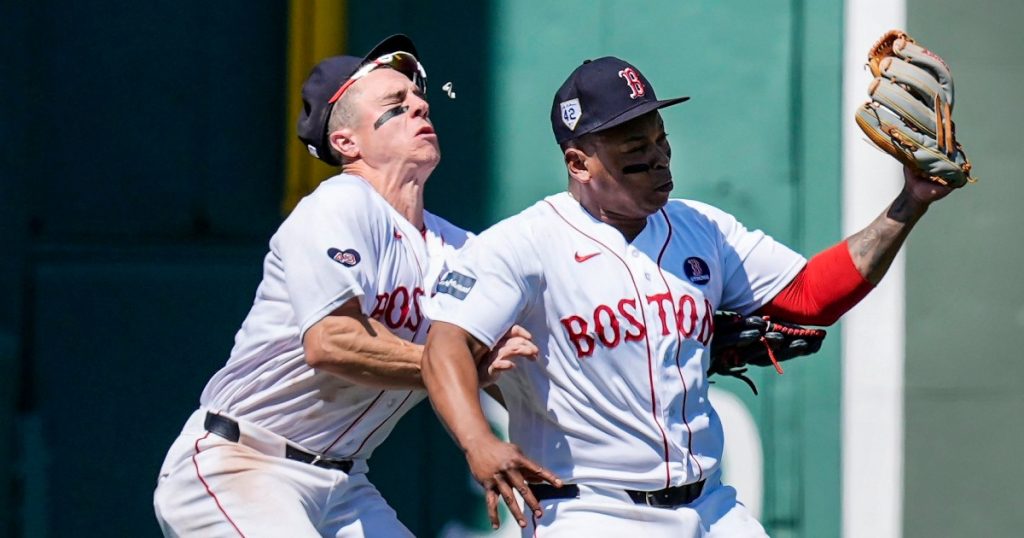Boston left fielder Tyler O’Neill was forced to leave a game against the Cleveland Guardians on Monday after colliding with third baseman Rafael Devers while chasing a shallow pop-up in the eighth inning. Devers managed to make the catch as he collided with O’Neill, causing both players to go to the ground. O’Neill appeared to be holding his face as he sat up, while Devers lay face down until a trainer and Red Sox manager Alex Cora came onto the field to assist them. O’Neill had a large gash on his forehead that required eight stitches, and was undergoing concussion protocol after the incident, while Devers walked off seemingly unaffected.
The collision between O’Neill and Devers occurred during a game in which the Red Sox were ultimately defeated 6-0. Following the game, Cora expressed concern for O’Neill’s condition, mentioning the stitches he required for his head wound and the need for him to go through the concussion protocol. Devers, on the other hand, told Cora that he felt fine but would still undergo the necessary tests to ensure his health and safety after the collision. The incident highlighted the physical demands and risks associated with playing professional baseball, especially when players are focused on making plays in high-pressure situations.
Despite the collision and resulting injuries to O’Neill, the Red Sox had to continue playing the game with a depleted lineup. Losing a key player like O’Neill to injury can have a significant impact on a team’s performance, as it forces other players to step up and fill the void left by the injured athlete. In this instance, Devers was able to continue playing after the collision, but the team may have to rely on other outfielders to compensate for O’Neill’s absence in future games until he is fully recovered and able to return to the field.
Alex Cora’s quick actions in calling for a towel to help O’Neill cover his face and directing the team’s medical staff to attend to the injured players demonstrated the importance of having a well-prepared and responsive support system in place during games. Injuries are an unfortunate reality in sports, but having the right resources and protocols in place can help ensure that injured players receive prompt and appropriate care to prevent further complications. Cora’s focus on O’Neill’s well-being and his communication with Devers about the need for caution following the collision showed his dedication to the safety and health of his players.
As the Red Sox move forward from the incident, they will need to monitor the progress of O’Neill and Devers as they recover from their injuries and undergo the necessary medical evaluations. The team may need to make adjustments to their lineup and strategies to account for the absence of O’Neill and any limitations that Devers may have as a result of the collision. While injuries can be disruptive to a team’s momentum and performance, the Red Sox will need to rally together and support each other as they navigate this challenging period and work towards a full and speedy recovery for their injured teammates. The incident serves as a reminder of the physical risks involved in professional sports and the resilience required to overcome adversity and continue competing at the highest level.


